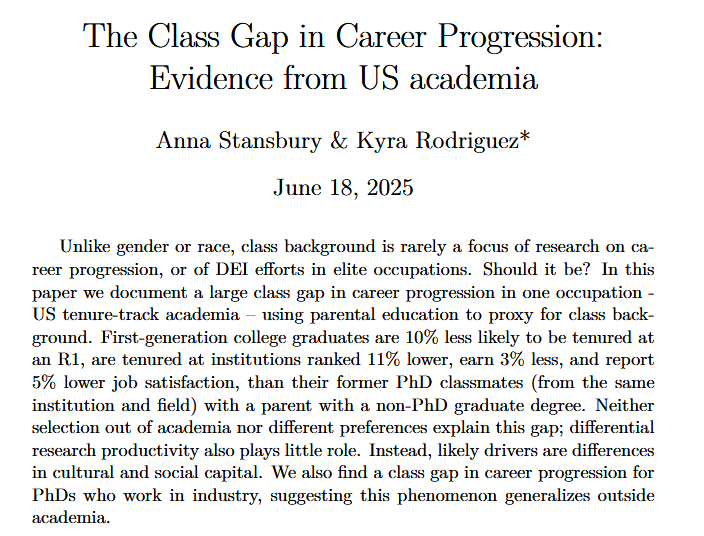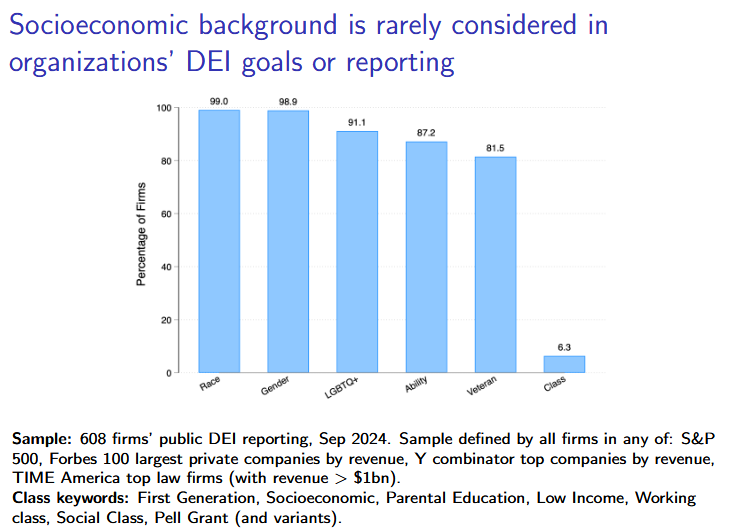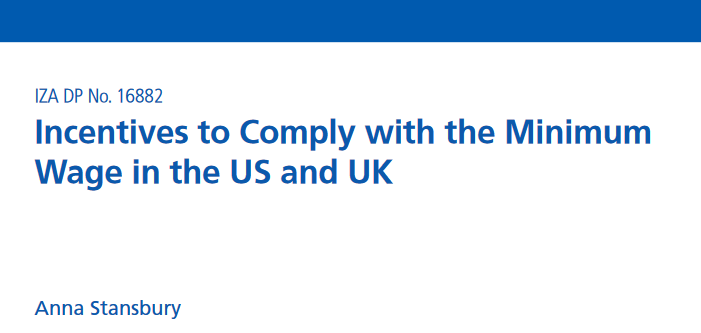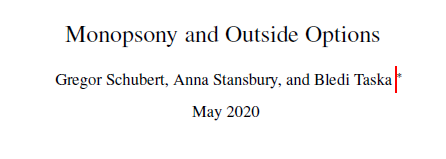
Economist: Labo(u)r, Macro, Inequality || 🇬🇧 in 🇺🇸 || Ass't Prof @MITSloan @MIT_IWER || Nonres fellow @piie || Research affiliate @izabonn
How to get URL link on X (Twitter) App


 Why are we interested in class at all?
Why are we interested in class at all?

 📖🎓SETTING: US tenure-track academia
📖🎓SETTING: US tenure-track academia
 First - what does the law (FLSA) stipulate? Firms violating the fed minimum wage are liable to pay:
First - what does the law (FLSA) stipulate? Firms violating the fed minimum wage are liable to pay:


 Why? The FLSA allow firms to be exempt from paying employees overtime wages if the employee is a “manager” and receives a salary above a $455/week.
Why? The FLSA allow firms to be exempt from paying employees overtime wages if the employee is a “manager” and receives a salary above a $455/week.

https://twitter.com/AlecStapp/status/1562384749498343424A few stats to kick us off. South Korea has:




 To proxy for socioeconomic background, we use the highest level of parental education.
To proxy for socioeconomic background, we use the highest level of parental education. 

https://twitter.com/WorkRiseNetwork/status/1457782657576701960
 The null effect doesn't seem to be coming from employers failing to perceive the union signal: it was pretty obvious in both the resume and cover letter, and MTurkers confirmed the salience of it in a check the authors ran.
The null effect doesn't seem to be coming from employers failing to perceive the union signal: it was pretty obvious in both the resume and cover letter, and MTurkers confirmed the salience of it in a check the authors ran. 


https://twitter.com/annastansbury/status/1379916780982792194(1) 14% of the admitted Harvard class are legacies. That's 1 in 7! For a typical white applicant (legacies are 70% white), the chance of admission is *FIVE TIMES* higher if you are a legacy. 41% of legacies in the class of 2019 came from top 1% income households.

https://twitter.com/simon_jaeger/status/1360632147028148224This is another must-read paper from @simon_jaeger and @Schoefer_B on shared governance!! You should definitely read the paper, including section 8 where the authors discuss implications.




https://twitter.com/MargRev/status/1265547171572695046Q: Is this to do with wage getting closer to MPL?


https://twitter.com/nberpubs/status/1265361517580558342We argue that the decline in worker power in the U.S. economy can explain:



 Paper available at:
Paper available at:


https://twitter.com/sophie_e_hill/status/1100796545325182982An external review is standard good practice for an institution when there have been pervasive internal failures, particularly if they may indicate some systemic or cultural issue. Why? Here are a few reasons: 2/13